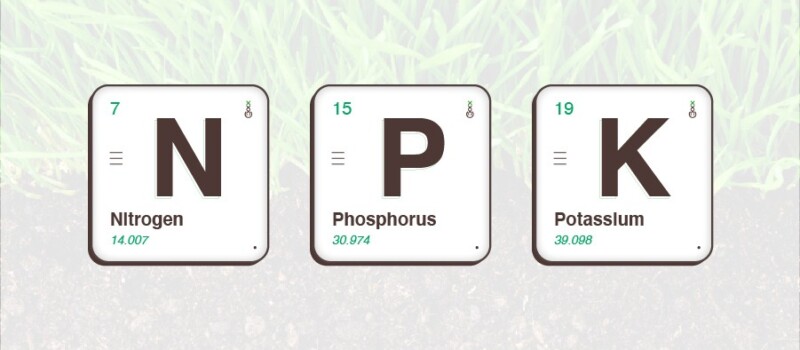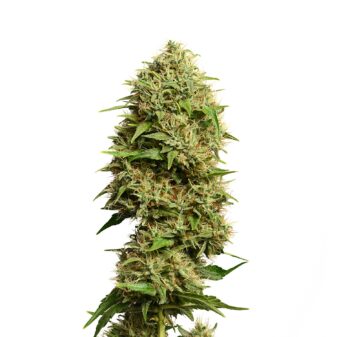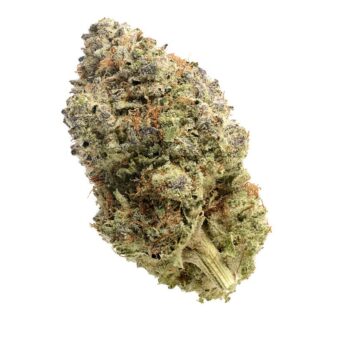Nitrogen (N), phosphorus (P), and potassium (K) are so-called micronutrients. Your cannabis plants need all three (and more besides) to unleash their full growth potential. Paying attention to micronutrients is important, because plants need different nutrients in different quantities as they pass through the various stages of their life cycle. In this context, ‘NPK’ is a famous grower abbreviation. That’s because together, phosphorus, nitrogen, and potassium stimulate root system formation, absorption of other nutrients, and many more crucial processes. Knowing a weed plant’s favourite food allows growers to give them all they need to enjoy a bountiful harvest.
Table of Contents
Nitrogen, Phosphorus, And Potassium: The Three Titans Of Nutrient Country
There’s all sorts of nutrients that you can feed your plants for support. However, nitrogen, potassium, and phosphorus are the three most important ones. As long as growers keep these three in check, they’re well underway to a good harvest.

Nitrogen (N)
Nitrogen is called a primary micronutrient. Not very surprising, as this substance is vital during both the growth and the flowering stages of all plants. Basically, this element is crucial throughout all stages of the life cycle of cannabis plants. Nitrogen is used for production of chlorophyll. This compound gives plants their green colour, as well as being a key component of photosynthesis: the process in which a plant converts sunlight into plant energy supplies.
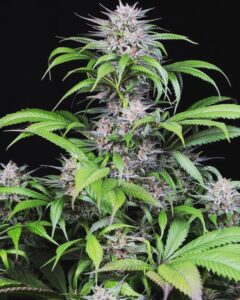
Nitrogen is the most common element in the earth’s atmosphere. Together with is carbon, hydrogen, and oxygen, nitrogen is also the most common element in organic lifeforms found on our planet.
Cannabis plants need nitrogen all throughout their life cycle. Not just for photosynthesis, but also as a basic building block for proteins. Without these proteins, plants grow weak and sickly. Nitrogen is furthermore needed to produce DNA and RNA, containing the genetic coding of the plant. Cells are unable to grow or reproduce without nitrogen. It is used to grow stems, leaves, branches, and roots.
So how do you know whether cannabis plants are suffering from nitrogen deficits? You can tell by discoloration of the oldest lower leaves. This is because nitrogen is a nutrient that can be relocated throughout the plant. If there is a lack of nitrogen when new leaves are formed, nitrogen stored in the older leaves is used instead. This causes the lower leaves to turn yellow and fall off eventually. Nitrogen deficits are also apparent in slow growth. The plants may weaken and become susceptible to disease and pests.
Phosphorus (P)
Phosphorus is necessary during the flowering phase. This micronutrient’s job is to make other nutrients available for the plant, allowing it to absorb them. Phosphorus is used to fortify the plant’s structure, from the roots to the flower buds. It is necessary to promote the overall health of your plant. Phosphorus makes a plant appear strong and vibrant. Germination of seeds depends on phosphorus, too.

Phosphorus deficits are expressed by underdeveloped root systems, leading to stunted plants. The flowering phase of a cannabis plant is where lack of phosphorus really sticks out, though. To all probability, the plant won’t be able to flower at all. An early warning sign of phosphorus deficits is a purplish colour of the leaf veins.
Potassium (K)
Potassium helps the plant as an auxiliary nutrient. It regulates the systems needed to stay healthy and to grow. Potassium ensures firm stems as well as stimulating ATP production needed for energy storage. It is also important for a strong immune system. In addition, potassium plays a part moisture evaporation through the leaves. It ensures proper balance of salt and water concentrations, and it is critical to sustaining a functioning sap flow throughout the plant.
Potassium is also crucial throughout the flowering phase, to control flower bud formation. Weed plants need it to keep cell pressure steady, protecting the plant from drought. This mineral is also important for the formation of a strong root system.
Potassium deficits become apparent in weak, low-energy plants. The first sign is usually leaves with yellow edges. A plant lacking in potassium is unable to regulate exchange of CO2, oxygen, and water. This results in thin, stretched plants with stems too weak to support their branches.
The Use Of Potassium, Phosphorus And Nitrogen
Providing your pants with these three essential nutrients is a key part of growing cannabis. Nitrogen, potassium and phosphorus are commonly sold as soil fertilizers named N-P-K. This formula usually states three figures indicating the percentages of each nutrient in the mix. 10-4-4, for instance, means 10% nitrogen, 4% phosphorus, and 4% potassium.
It’s a good idea to keep track of these NPK percentages. Cannabis plants will need different ratios in every stage of their life. Product packaging usually indicates the particular stage for which fertilizers are intended (growth or flowering). In the growth or vegetative phase, weed plants need more nitrogen, whereas they can use more phosphorus and potassium while flowering.
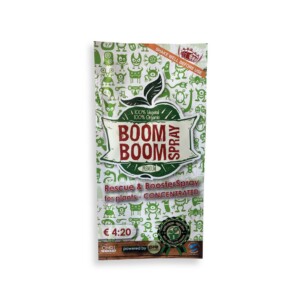
In case you’re wondering, NPK servings can be kept completely organic for natural results. The BIO PK liquid you’ll find in our webstore contains a careful balance of fully organic nitrogen, phosphorus, and potassium. That’s an efficient, fast growth or flowering booster for any cannabis plant, regardless of the strains or soil types you prefer.
Nitrogen, Phosphorus And Potassium For Various Growing Methods
Growing cannabis can be approached in various ways: in full soil, in pots, or using hydroponics. Growing with hydroponics means raising your plants not in soil, but in a basket or pot filled with a growing medium (like coco fibre, clay pellets, or rockwool, for example). Each growing method requires different nutrient regimes.
Hydroponics Fertilizers
If cannabis plants are grown using hydroponics, nutrients come in liquid or powder form. These concentrated minerals have to be dissolved in water before the plant can absorb them. Liquid products are sold as two separate components A and B. When these are added to water, all nutrients become available to your plants.
Providing just the right nutrients is a veritable art form. Give too much and you’ll harm your plants, or even kill them. The safest approach is to start out at 25% of the recommended quantity stated on the package, and then to gradually increase to the full dose.
Roughly speaking, NPK ratios of 3:1:1 are best for any cannabis strain throughout the growth stage. Once the plants start to flower, nitrogen percentages should be lowered as potassium and phosphorus levels increase. Early flowering calls for a 1:3:2 ratio; late flowering requires 0:3:3 instead.

Growing In Soil
Growing weed in soil is completely different from growing on hydroponics. Plants with their feet in the earth benefit from all the available nutrients already contained in the soil. Humus, organic fertilizer, compost, and countless micro-organisms are already working to keep the soil balanced. That means many of the essential nutrients will be available by default. These substances are not soluble, however, so microbes and fungi are needed to convert them into form usable by plants.
Cannabis grown in soil can still benefit from added nutrients for health support. Liquid fertilizers used for hydroponic grows are not essential. Most soil types contain plenty of nitrogen to see your plant through.
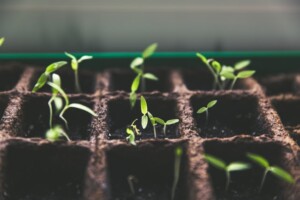
So with these NPK facts out of the way, let’s head for the Amsterdam Genetics Seeds range and see which strain deserves all those lovely nutrients the most!








